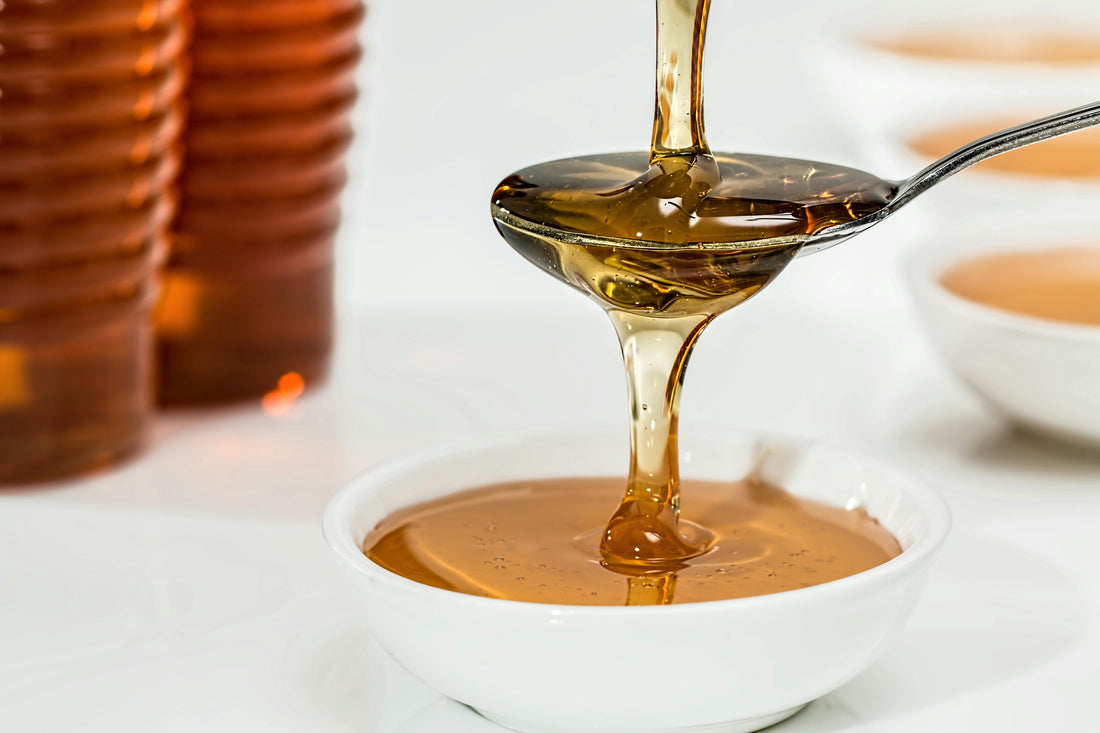If you’ve been around the honey world for a while, you might’ve heard the old-school advice: “Never use a metal spoon to scoop honey!” This little ‘piece of advice’ has floated around for generations, passed down like a secret recipe. But is there any truth to it, or is it just one of those myths that’s been buzzing around without much reason? Let’s dig in and find out.
The Myth
The myth goes something like this: using a metal spoon to scoop honey will somehow ruin it. The idea is that metal will react with honey, causing it to lose its natural goodness—its flavor, enzymes, and even its beneficial properties. Some versions of the myth even suggest that using a metal spoon can make honey toxic. That’s a pretty hefty accusation against something as harmless as a spoon, right?
The Facts
First things first, honey is acidic. With a pH ranging from 3.4 to 6.1, it’s closer to the acidic side of the scale. Now, acidity and metal can sometimes be a tricky combo, especially with reactive metals like aluminum or copper. These metals can react with acidic substances, leading to unwanted flavors or even contamination. But here’s the kicker: your everyday kitchen spoon is most likely made of stainless steel, which is non-reactive. This means it’s highly resistant to corrosion and doesn’t react with acidic foods—honey included.
So, Is It Safe?
Absolutely. Using a stainless steel spoon to scoop honey is perfectly safe. Stainless steel is a durable, non-reactive metal that won’t interfere with honey’s natural properties. Your honey won’t suddenly turn into a bitter, enzyme-free mess just because you used a metal spoon to scoop it. In fact, the honey probably doesn’t even notice the spoon at all.
Where Did This Myth Come From?
So why did this myth even start? It likely has its roots in the days before stainless steel was a kitchen staple. Back then, utensils were often made from materials that did react with acidic foods. People might’ve noticed that their honey tasted off after being scooped with, say, a copper spoon. Over time, this cautionary tale evolved into a general “avoid metal” rule, which doesn’t really apply in modern kitchens.
What About Wooden or Plastic Spoons?
Now, if you prefer using a wooden or plastic spoon, you can always do so. Wooden spoons are a classic choice, especially since they’re gentle on honey. Plastic works fine too, though it might not feel as fancy. But here’s the thing: these alternatives are just that—alternatives. They’re not superior to stainless steel; they’re just different.
Wooden spoons can sometimes absorb moisture or flavors, and plastic can wear down over time, especially if it’s exposed to heat. Stainless steel, on the other hand, is easy to clean, long-lasting, and won’t absorb any of the honey’s flavors or properties. So while wooden and plastic spoons are perfectly fine, they’re not inherently better than metal.
Conclusion
In the end, you don’t have to stress about using a metal spoon with your honey. It’s a myth that’s been passed around for years, but modern science and kitchen practices have debunked it. Whether you’re drizzling honey on your morning toast, stirring it into tea, or scooping it straight from the jar for a quick sweet fix, you can confidently use that stainless steel spoon.
Reference
Mill Creek Apiary (2024). Honey & Metal Spoons. Retrieved from https://millcreekapiary.com/blogs/mill-creek-tribune/honey-metal-spoons

